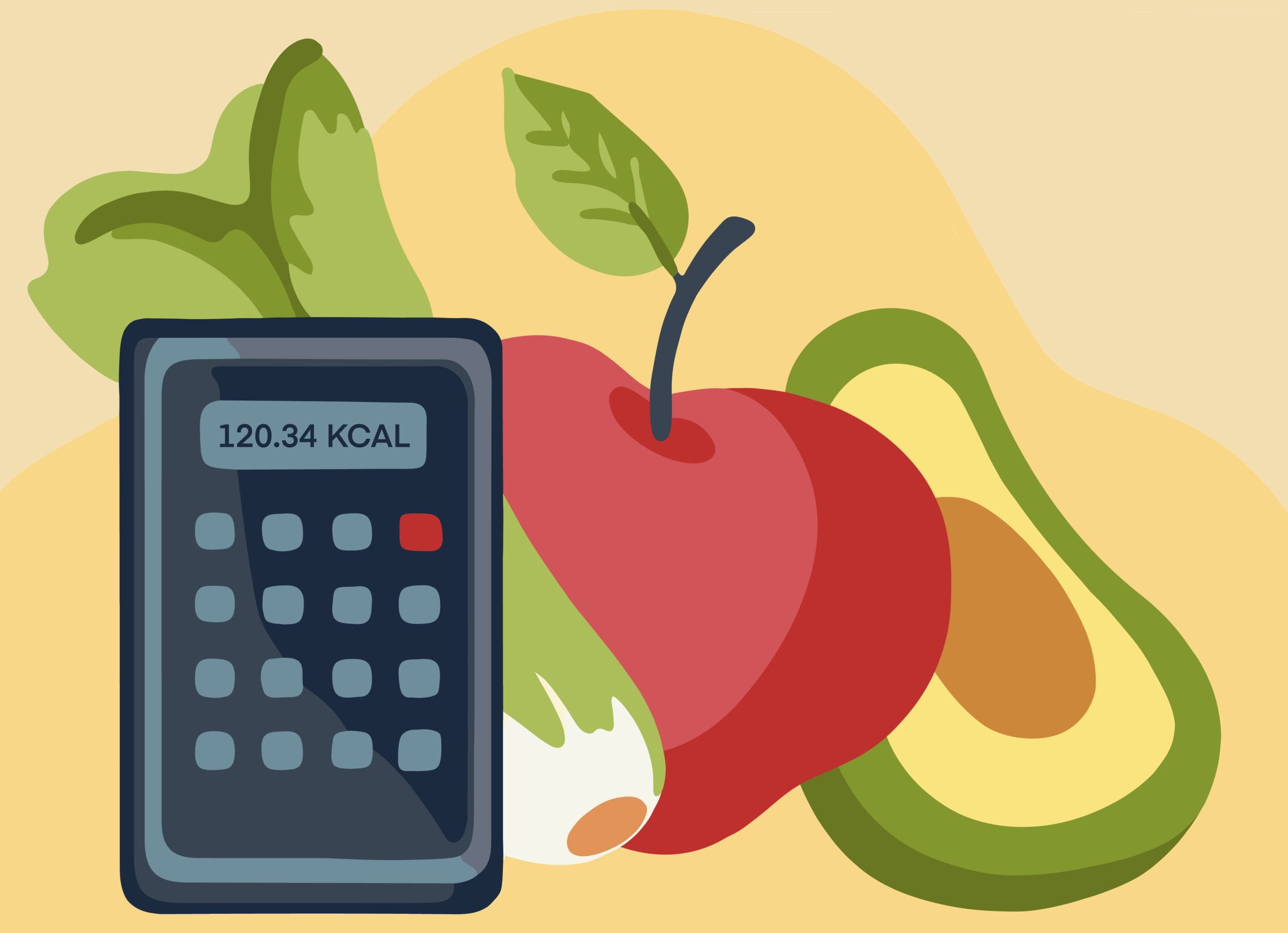
Credit: Abby Fricke | Managing Editor for Design
Moderation is key — especially when it comes to calorie-counting apps.
Apps like MyFitnessPal — one of the most popular and well-established calorie-tracking apps that launched in 2005 — typically give people a free way to maintain healthier diets, said Rick Petosa, an Ohio State professor of kinesiology in the Department of Human Sciences. However, the apps can also lead to overly obsessive and unhealthy eating habits, Janele Bayless, the university’s wellness coordinator for nutrition education, said in an email.
“[Using the apps] could be a ‘gateway’ for experiencing disordered eating, which could lead to the development of an eating disorder,” Bayless said.
Bayless said she has observed a significant connection between regularly using calorie-tracking apps and experiencing indications of an eating disorder, namely an obsession with calorie counting, a rigid diet, high app dependency and negative emotions surrounding eating.
Abbie Evans, a third-year and former user of MyFitnessPal, agreed with Bayless. Evans said she began personally using the app during the COVID-19 pandemic in 2020 to become more physically fit but then stopped using it in the summer of 2021 due to the toxic relationship she developed with eating.
“I would feel guilty about eating certain things, or binge eating,” Evans said. “I would still be hungry, but it’s like, ‘Oh, I ate my calorie deficit for the day, I can’t eat anymore.’ I think me and food had an unhealthy relationship after using it.”
Evans said despite these downsides, she still recognizes these apps’ positive features, like their ability to cater to different body types and goals. The pre-logged meal feature, which automatically records daily calories and other nutritional details like protein intake, is also demonstrative of the apps’ convenience, she said.
Bayless said Evans’ assessment makes sense, as it is common for individuals to have both positive and negative attitudes toward calorie-counting apps because of their nutritional insights and other useful fitness resources.
“Calorie trackers are like any tool – it depends on how it’s used and the impact it has,” Bayless said.
Like Bayless, Petosa said users can shape their own experiences with the apps depending on how they choose to use them. Specifically, he said there are often two different categories users can fall into: those who consistently monitor their eating habits daily and those who sparingly use the apps to simply become more informed about healthy food options.
Petosa said he personally aligns more with the latter user, or the “self-monitoring learner,” as he primarily uses the apps to learn about certain foods’ nutritional value. Yet, he said both groups are valuable in their own regard as they can lead people to healthier lifestyles.
“That’s the really wonderful thing about all of these tools: they make the subconscious conscious, opening the door for you to take control and be in charge of your diet and your exercise,” Petosa said.
On the other hand, Bayless said there are alternatives to calorie-tracking apps that still assist one in meeting their nutritional needs without putting them at risk for developing unhealthy habits. Some of these options include Ohio State’s Intuitive Eating Workshop Series or nutrition coaching, both of which are free to all current Ohio State students.
Even with an app or program, Evans said the most important health and fitness resource is simply listening for what her body needs.
“I realized just exercising in general is really important for my mental health, and it’s less about tracking the food,” Evans said. “It’s more about how I feel.”/


